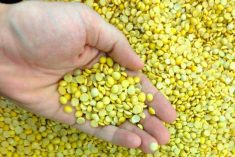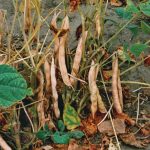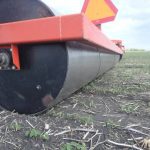A national survey on the watch for potato wart has come back clean.
On March 13, the Canadian Food Inspection Agency (CFIA) said results from their 2022 potato wart survey had not found any cases of the soil-borne fungus. The agency had tested nearly 1,500 soil samples from fields in British Columbia, the three Prairie provinces, Ontario, Quebec, New Brunswick and Nova Scotia.
Prince Edward Island, whose potato sector has been newly haunted by the fungus following cases in 2021 and 2022, was not directly included in the survey. However, the CFIA targeted farms that had a history of sourcing seed potatoes from the Maritime province.
Read Also

More canola, spring wheat likely to be seeded this spring
As spring planting approaches, farmers are busy planning which crops to seed this year and how much. With that, market thoughts have turned toward planted area projections, as Statistics Canada is set to issue its report on Thursday.
The agency described the survey as “an important step in the government of Canada’s efforts to help contain and control the spread of potato wart and reassure domestic and international trading partners.”
In October 2021, two processing potato fields in Prince Edward Island were confirmed infected with potato wart. The news had immediate trade impacts to the sector.
Citing U.S. concerns, the federal government locked down fresh potato exports from the province. Trade of eating potatoes resumed to the U.S. in April 2022, although export of seed potatoes to the U.S. still remains off limits.
Following the findings, the federal government promised $28 million to help impacted producers divert their sudden potato surplus. Prince Edward Island pitched in a further $12.5 million.
Those first cases were followed by confirmations in February 2022, July 2022 and, frustratingly for the potato sector, December of last year.
Domestic and export requirements and restrictions are still in place around movement of potatoes out of the province, as well as mitigation orders around things like soil movement and farm equipment.
Producers have said that millions of pounds of potatoes had to be destroyed following the loss of markets.
The CFIA has said that the cluster of potato wart cases represents “the largest ongoing investigations since the pest was first detected in P.E.I in 2000.
“The size and scope of these ongoing investigations required the strongest regulatory action to date to help protect against the further spread of potato wart outside of P.E.I.”
While not part of the national survey, there have been investigations specific to P.E.I. Almost 44,700 samples had been taken by the end of 2022 as part of that program, about 35,500 of which have been processed.
The CFIA has said that the national survey will dovetail with ongoing potato wart investigations.
Survey results have been forwarded to the CFIA’s American counterpart, the U.S. Department of Agriculture’s Animal and Plant Health Inspection Service (APHIS).
















